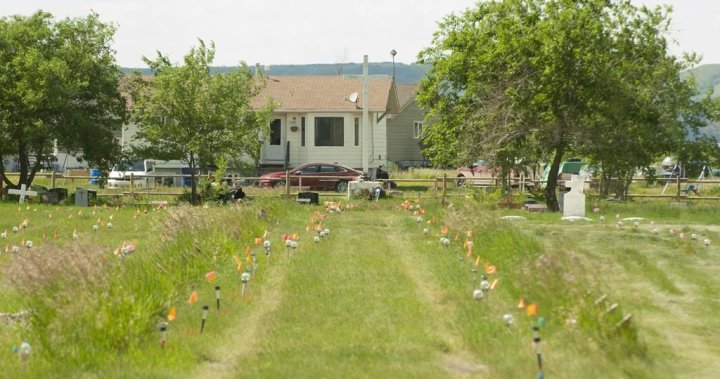
Official exploring special tribunal option to probe residential school crimes
Global News
Kimberly Murray, a former executive director of the Truth and Reconciliation Commission of Canada, was named a special interlocutor in June by federal government.
An independent official appointed to help communities investigate unmarked graves at former residential school sites says she is exploring the idea of whether a special tribunal should prosecute or investigate related crimes.
Kimberly Murray, whom the federal government named as a special interlocutor on the file in June, says that questions of justice are arising often in her conversations with Indigenous communities and survivors.
Murray is a former executive director of the Truth and Reconciliation Commission of Canada, which spent seven years investigating the residential school system.
The creation of the independent office she now leads was spurred by announcements from First Nations across Western Canada, beginning last year, that ground-penetrating radar technology had detected the presence of what are believed to be hundreds of unmarked graves near where residential schools once operated.
As of May, government statistics showed that at least 1,685 such graves had been reported across nine First Nations.
The findings touched off a reckoning about the ongoing impacts of residential schools and raised questions of accountability around the deaths and disappearances of Indigenous children who were forced to attend the government-funded, church-run institutions.
“I am not thinking that the current justice system in Canada is capable of doing this type of investigation and prosecution,” Murray said in an interview Thursday. “And so, what’s the right answer?”
She said reports from the Truth and Reconciliation Commission document the history of distrust Indigenous communities have towards the justice system, so she is considering looking to international experts to get their advice.











